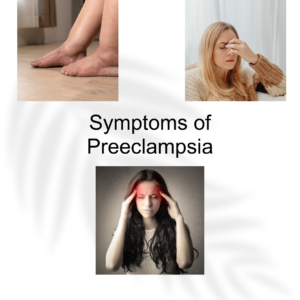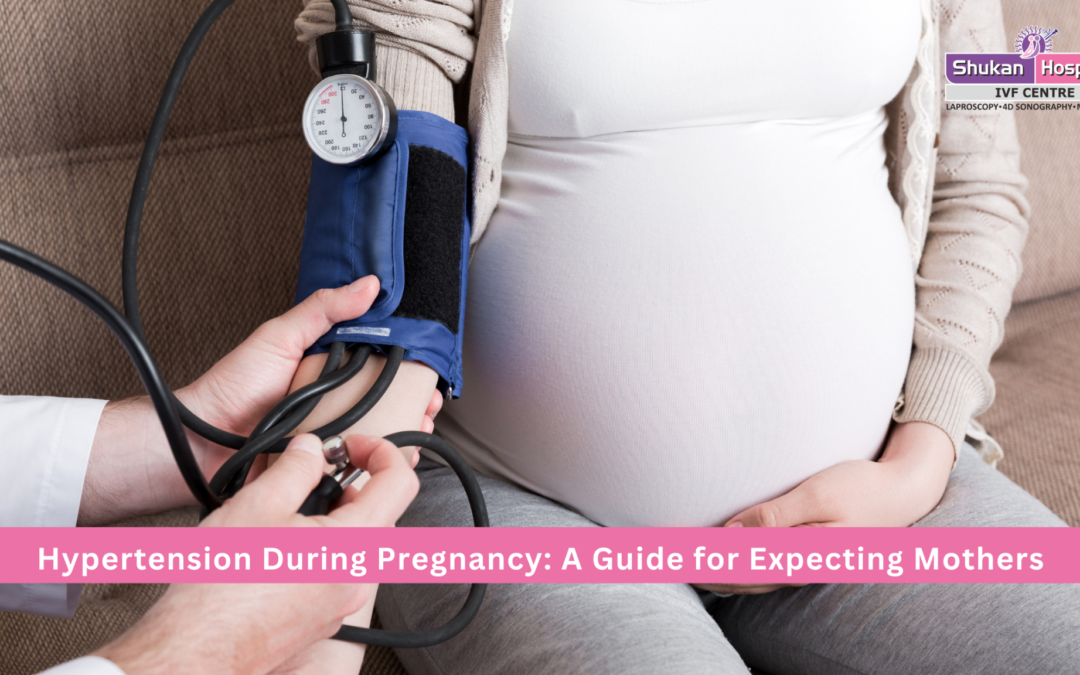Understanding Hypertension During Pregnancy
Hypertension, or high blood pressure, during pregnancy is a condition that requires attention to ensure the health of both mother and baby. Gestational hypertension, also known as pregnancy-induced hypertension (PIH), develops after the 20th week of pregnancy and typically resolves after childbirth.
Unlike chronic hypertension, which is present before pregnancy, gestational hypertension is temporary but can lead to complications if left unmanaged.
Symptoms of Gestational Hypertension
Gestational hypertension may not always show noticeable symptoms, which is why regular blood pressure checks during prenatal visits are essential. Some symptoms that may indicate high blood pressure include:
- Persistent headaches
- Blurred vision or visual disturbances
- Upper abdominal pain
- Swelling in hands and face
- Shortness of breath
Risk Factors for Hypertension During Pregnancy
Certain factors may increase the risk of developing hypertension during pregnancy, including:
- First-time pregnancy: Women who are pregnant for the first time are more susceptible.
- Maternal age: Being under 20 or over 35 increases risk.
- Obesity: Excess weight can contribute to high blood pressure.
- Multiple pregnancies: Carrying twins or triplets raises the likelihood.
- Pre-existing health conditions: Diabetes, kidney disease, and autoimmune disorders can be contributing factors.
How Hypertension Affects Pregnancy
Uncontrolled hypertension can lead to complications such as:
- Preterm birth: Increased risk of early delivery.
- Low birth weight: Babies may have developmental concerns.
- Placental abruption: A severe condition where the placenta separates from the uterus.
- Preeclampsia: A life-threatening condition that requires immediate medical attention.
Preeclampsia: A Severe Form of Hypertension
Preeclampsia is a more serious condition that includes high blood pressure along with signs of organ damage, typically in the liver and kidneys. It usually appears after 20 weeks of pregnancy and can be dangerous if untreated.
Symptoms of Preeclampsia
- High blood pressure readings above 140/90 mmHg
- Severe headaches
- Vision disturbances, such as seeing spots
- Swelling in the hands, feet, and face
- Nausea or vomiting
Managing Preeclampsia
Treatment varies depending on severity but may include:
- Medications: Blood pressure-lowering drugs that are safe for pregnancy.
- Bed rest: In some cases, rest is recommended to manage symptoms.
- Delivery: If preeclampsia is severe, early delivery may be necessary.
How to Monitor Blood Pressure During Pregnancy
Regular monitoring can help detect hypertension early and prevent complications.
Home Blood Pressure Monitoring Tips
- Use a digital blood pressure monitor.
- Measure at the same time each day.
- Sit in a relaxed position before checking.
- Keep a record of readings and share them with your doctor.
Lifestyle Management for Hypertension in Pregnancy
Diet Tips to Control Blood Pressure
Eating a well-balanced diet can help manage blood pressure.
- Reduce sodium intake: Avoid processed and salty foods.
- Increase potassium-rich foods: Bananas, spinach, and sweet potatoes help regulate blood pressure.
- Stay hydrated: Drinking sufficient water prevents dehydration-induced hypertension.
- Eat small, frequent meals: Helps maintain steady blood sugar levels.
Safe Exercises for Pregnant Women
- Walking: Helps maintain cardiovascular health.
- Prenatal yoga: Reduces stress and promotes relaxation.
- Swimming: A low-impact way to stay active.
- Stretching exercises: Keeps muscles relaxed and prevents stiffness.
Medical Treatments and Interventions
In some cases, medication may be needed to control hypertension during pregnancy. Common treatments include:
- Labetalol: A commonly prescribed blood pressure medication.
- Nifedipine: A calcium channel blocker used for pregnancy hypertension.
- Aspirin (low dose): Sometimes recommended for high-risk women.
Emotional Well-being and Support
Hypertension during pregnancy can be stressful. Some ways to manage emotional well-being include:
- Practicing mindfulness and meditation
- Seeking support from family and friends
- Consulting a healthcare professional for stress management techniques
- Joining prenatal support groups
FAQs
Can hypertension during pregnancy be prevented?
While not all cases can be prevented, maintaining a healthy diet, exercising regularly, and attending prenatal check-ups can help reduce risks.
Will my baby be affected by my high blood pressure?
If managed well, many women with hypertension go on to have healthy pregnancies. However, uncontrolled high blood pressure can lead to complications such as preterm birth or low birth weight.
Is it safe to take medication for high blood pressure while pregnant?
Yes, but only under the guidance of your healthcare provider. Certain medications are considered safe for pregnancy, while others should be avoided.
How often should I check my blood pressure at home?
If you have been diagnosed with hypertension, it is recommended to check at least once or twice a day, as advised by your doctor.
Can stress cause high blood pressure during pregnancy?
While stress alone does not cause hypertension, it can contribute to elevated blood pressure. Managing stress through relaxation techniques and a healthy lifestyle is important.
At Shukan Hospital and IVF Centre, we specialize in comprehensive maternal care. Our team is dedicated to ensuring a healthy pregnancy journey for every mother. If you have concerns about hypertension during pregnancy, book an appointment with our experts today!

